An evening dedicated to the 90th anniversary of the Abaza writing was held at the Abkhazian State University.
Amra Amichba
At the Abkhazian State University (ASU), in the office named after the poet, lecturer, candidate of philological sciences Vladimir Ankvab, an evening was held dedicated to the 90th anniversary of the Abaza writing.
The head of the office, senior lecturer of the Abkhaz language Department Akhra Ankvab noted that the choice of venue for the event was not accidental: a new round of cooperation between the ASU and the scientific Abaza community began in 2018 with commemorative events in honor of the anniversary of Vladimir Ankvab, who did a lot for rapprochement and communication between two fraternal peoples.
The head of the office said that at the Abkhazian University, the study of the Abaza language and literature has been introduced into the curriculum of the Faculty of Philology in the "Abkhaz language and literature" and "Abkhaz language in a non-Abkhaz school" fields for almost 30 years already. In February of this year, students of these fields for the first time took part in the "Total dictation" in the Abaza language, which was held in Karachay-Cherkessia and other regions where Abaza live in Russia, as well as in Turkey.
"In the second and third year for a year and a half, students study the Abaza language and literature. It cannot be said that during this time they fully master the language. [These subjects] are taught to interest students and encourage them to further study the language and research work," Akhra Ankvab explained.
ASU third-year student Milana Gitsba started studying Abaza this academic year. She sees a lot in common between the Abaza language and her native Abkhaz one.
"The Abaza language is evidence of the unity of the Abkhaz-Abaza people. The differences are not so great, we (Abkhazians - ed.) can understand the speech of the Abaza. The language reflects the common history of our people. I am very glad that I got the chance to learn such an interesting language," the girl shared.
Opening the conference, the dean of the Faculty of Philology of ASU Batal Khagush welcomed the guests from Karachay-Cherkessia: a well-known linguist, professor, head of the Center for the study of languages of the peoples of Karachay-Cherkessia, vice-rector for scientific work of the KSSU Sergey Pazov and the head of a separate division ANO "Alashara" in Cherkessk Murat Mukov.
"We say: "Welcome, guests!", but you are not guests, you are brothers. There are mountains between us, but vitally, historically, Abaza and Abkhazians are connected. We are one people, and the bigger our interaction is, the closer we will become, and together we will be able to resist the vicissitudes of life," the dean expressed confidence.
The hosts of the evening - students Sabid Agrba and Albina Khadzhimba - made presentations on the main stages in the development of Abaza writing, named Abaza and Abkhazian scholars - pioneers and those who are engaged in research work on the topic today. Students studying the Abaza language read poetry and sang in Abaza.
Professor and head of the Center for the Study of the Languages of the Peoples of Karachay-Cherkessia Sergey Pazov gave an extensive lecture on the history of the creation and development of the Abaza script, spoke about hypotheses and scientifically proven facts. The current alphabet has existed since 1938. It is based on the Cyrillic alphabet and has 71 letters, but the first alphabet, developed on the basis of the Latin one, was created in 1932. The scholar noted that the importance of writing among peoples in general is difficult to overestimate, because it is thanks to writing that it is possible to preserve knowledge about the ethnic group, its culture, traditions, language.
"Much of what we do not know today, be it history, culture, language itself, we could have known if writing existed 200-500 years ago. It is writing that preserves this knowledge. It also preserves the language. Perhaps [if there was a written language] today we would have the Abaza and Abkhaz languages in a much closer format. The spoken language is rapidly changing, especially vocabulary and phonetics. For example, there is the Ashkhar dialect, which occupies an intermediate state between the Abkhaz and the current literary Abaza language. When you explore the history of the phonetics of the Abaza language, it turns out that out of the three once common sounds, today we have 12 new sounds in different languages and dialects. This can be used to judge how rapidly languages change and diverge in many ways," Sergey Pazov gave interesting details.
At the end of the evening, the participants were shown the first ever film in the Abaza language "Three Brothers" directed by Aslan Apsov based on the folk tale "How the Three Brothers Deceived the Prince". This fairy tale in the 30s of the last century was written by Tatlustan Tabulov in the style of Abaza folk tales..
Presenting the feature film, Murat Mukov, head of a separate division ANO "Alashara" in Cherkessk, noted that it was filmed "on the initiative and goodwill of the philanthropist, Chairman of the Supreme Council of the World Abaza Congress Mussa Ekzekov."
"I want to say a big thank you to Mussa Ekzekov for the fact that we have this product in the Abaza language. We are trying to cover all areas for the popularization of the Abaza language - the study, dissemination and propaganda, in a good sense, of the language, but in addition to this, we need to keep up with the times. Unfortunately, the internet and videos do much more than books these days. The film can convey language, culture, history to compatriots and other peoples of the world," said Murat Mukov.
He stressed that everyone who worked on the film decided to participate in it completely at no charge.
"There was an amount that we spent to organize everything, but the help of people was absolutely free. A lot of people are involved in the film - these are actors, members of national ensembles and other groups, and villagers. Not only Abaza helped in the creation of the film, but also other nationalities living in the Republic (KChR - ed.) - these are Karachays,Circassians, Russians, and Nagais, troupes of their theaters. It turned out to be an interethnic film in the Abaza language, which was created by joint efforts," the head of "Alashara" noted not without pride.
The Abaza film in Abkhazia was held in a closed screening format - only for participants in the celebration of the 90th anniversary of the Abaza writing. It has not yet been shown to the general public even at home: while it is being taken to festivals, the premiere is planned to be held in Karachay-Cherkessia in August.
As part of the celebration of the 90th anniversary of the Abaza language, a photo exhibition was also presented in the office named after Vladimir Ankvab about the project on the interaction between ASU and Abazashta from 2018 to 2022, a stand with books dedicated to the study of the relationship between the Abkhaz and Abaza languages was presented.
In the era of globalization and convenient interpenetration of different cultures and languages, specialists in the field of native languages, national universities, public organizations pay special attention to the issue of preserving and developing national languages. The preservation and development of the native language is one of the priorities of the WAC. In addition to organizing full-time and distance language courses in the countries of the diaspora, in Russia and Abkhazia, recently the Congress, in partnership with the ANO "Alashara" and together with language experts, has implemented a number of projects in this direction, including in popular modern formats. This is the creation of the latest teaching aids and the methods themselves, the production of video lessons, the recording and distribution of songs in the Abkhaz and Abaza languages, the translation of animated films, the start of the work of the Abaza kindergarten, the creation of a feature film in the Abaza language and other projects.
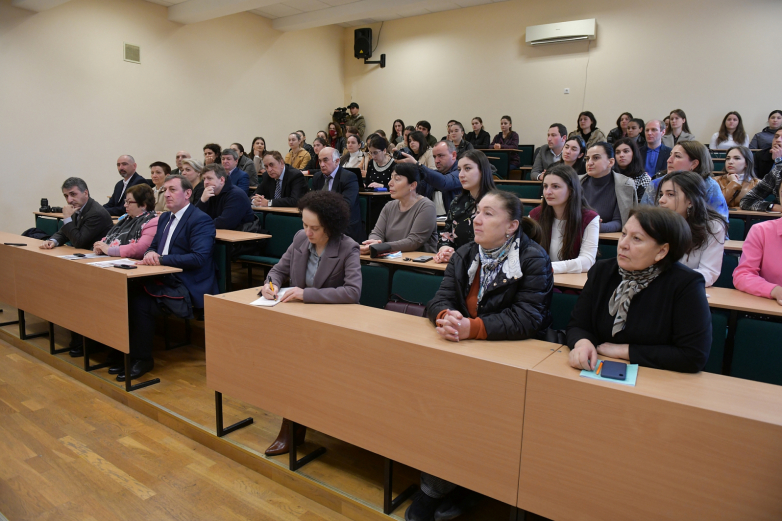
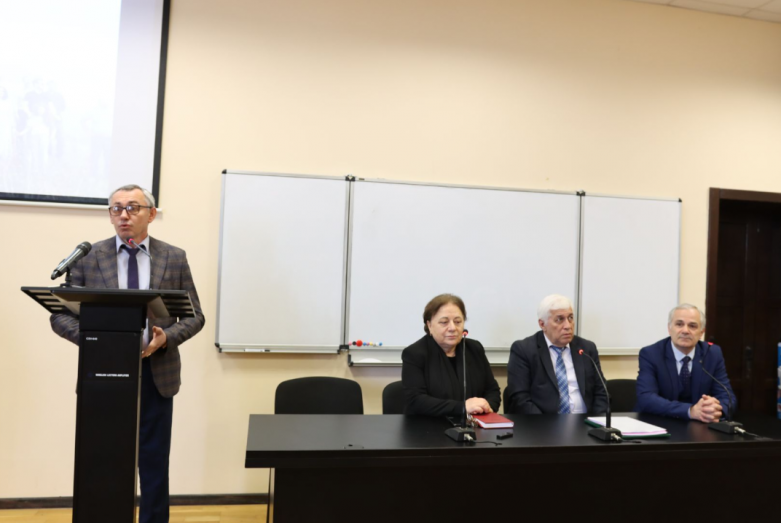
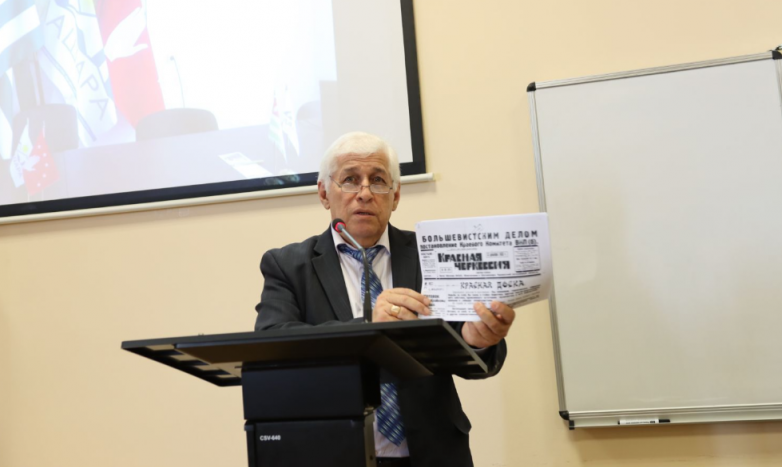
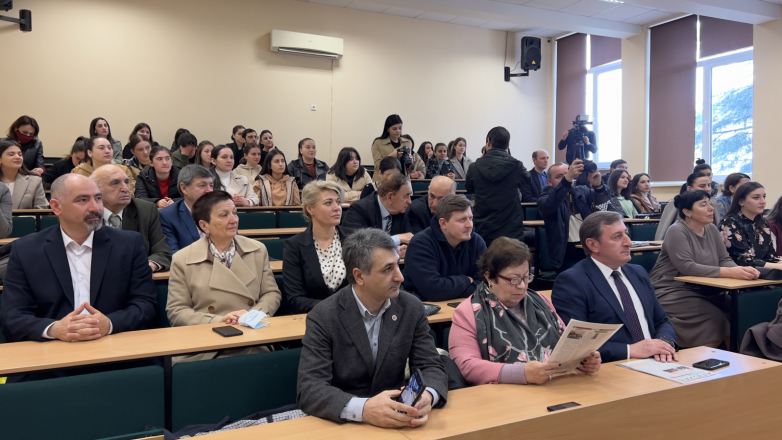
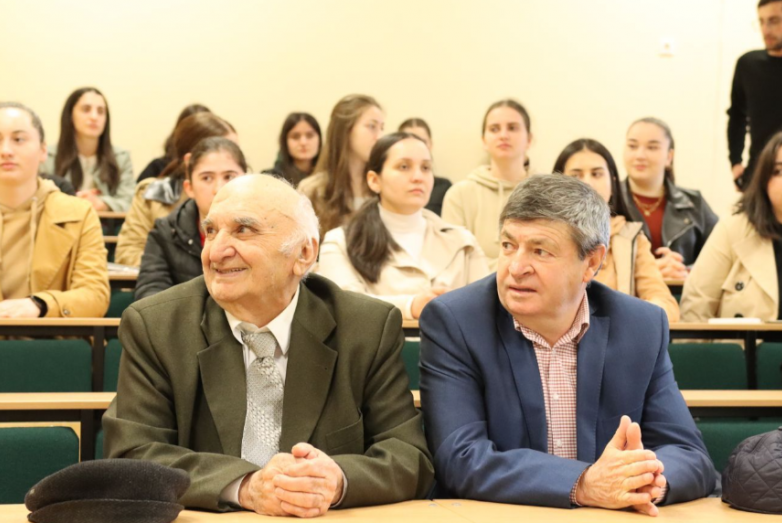
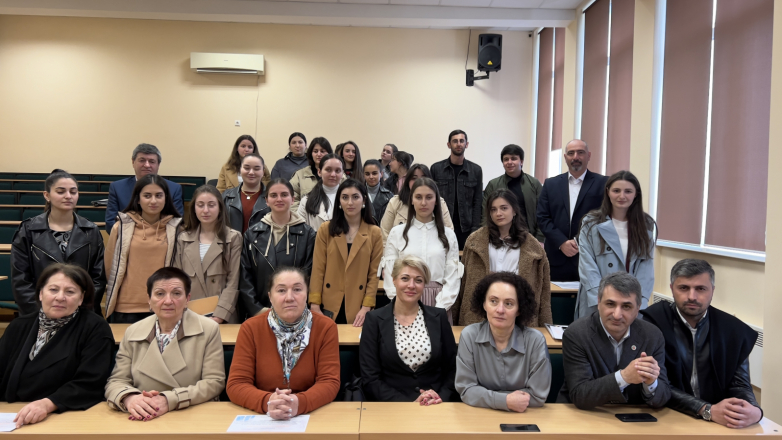
to login or register.